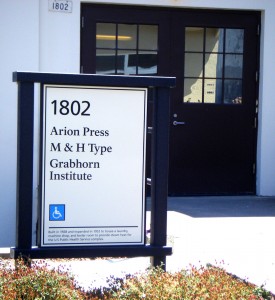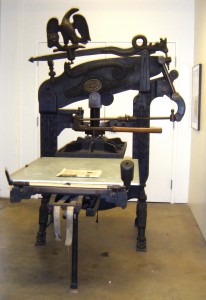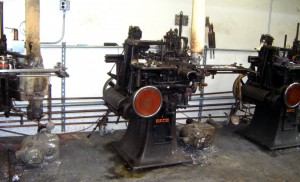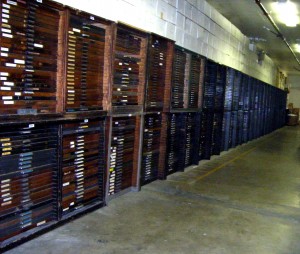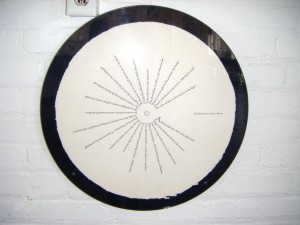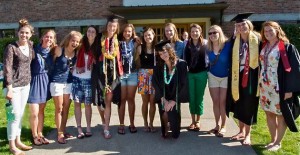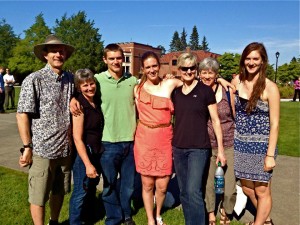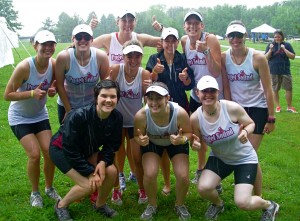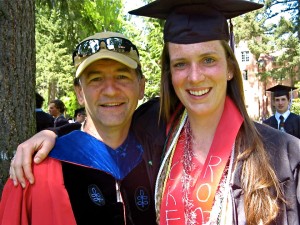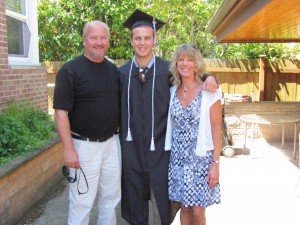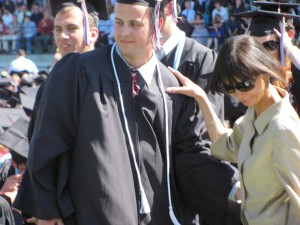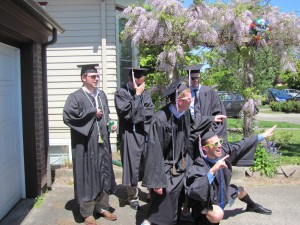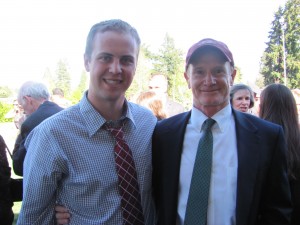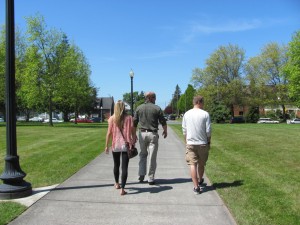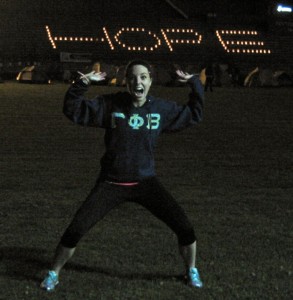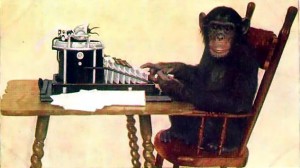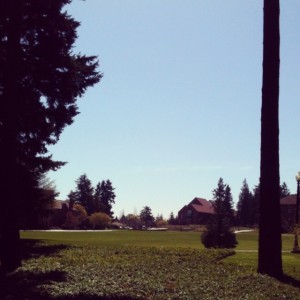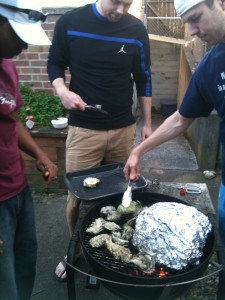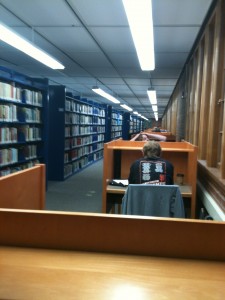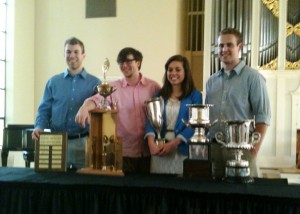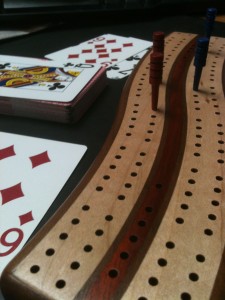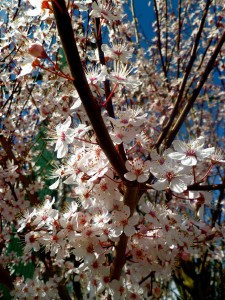Another week of research done, this one incorporating visits to three presses and one library. The presses: Iota Press, in Sebastopol; Peter Koch, Printers, in Berkeley; and Flying Fish Press, also in Berkeley. The library: The Bancroft Library at UC Berkeley. All three presses were vastly different from each other, and especially from the Arion Press, my first visit. I discovered that the Arion Press is somewhat in a class of its own, that an $11,750 book is not necessarily the norm in fine printing, even if the edition does include additional portfolio prints.
Iota Press, in classic Sonoma County form, is located behind a beekeeping store, and is run by Eric Johnson and a co-op of about 10 others. Together they publish and print everything from original poetry chapbooks to experimental letterpress posters. Comparing his products to modern technology like ipads, Mr. Johnson declared, “We want to be left in the dust.” He explained that in his view, advances like e-books and e-readers make it possible for him to create his art in peace, left alone because he is so far behind what’s current. Asked why he is so dedicated to creating a literary and graphic blend in his art, he said he likes people to be surprised visually: he wants things to happen while people read.
A couple of the co-op members were in the studio while I was talking to Mr. Johnson, and one of them, Judi, gave her opinion about the relation between what she does and e-books. She was intensely passionate about wanting physical books to be handled, touched, even smudged with ketchup if it means they’re being read. To her, e-books take away the important connection of tactility and reading. Interestingly enough though, she did say that if e-books were created with the goal of making them the highest possible quality, they would be better because then they would at least have more significance artistically.
A week later, I ventured into Berkeley (I only got lost twice!), first to Peter Koch’s studio. 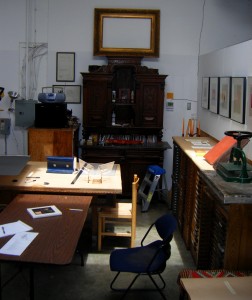
This man is a Bay Area printing legend, especially because of his creation of Codex, one of the largest handmade book fairs in the world. He has been printing for more than 40 years, and looking at any of his creations it’s obvious that he knows how to produce exceptional art without taking himself too seriously. Although he freely acknowledges that he is an elitist and doesn’t think his books are for the average person, his ‘tagline’ under his name is “Real Kick-Ass Books”. It is this blend of tongue in cheek and quality of products that make his work so accessible and fascinating. He said that the sophistication necessary for people to appreciate his books exists only at the most rarefied air (he boasted that “our books have legs”), but he also recognized that the fact that someone as average as myself is interested in what he does means that young people realize the importance of artisanship in the future of books. 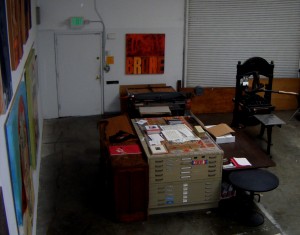
Finally, I made it to Julie Chen’s Flying Fish Press, the smallest of all the places I’ve visited yet, which is surprising given how intricate and large most of her creations are. Her work is purely in the category of book arts, meaning that the physical object itself is as important a feature of the content as the text. To this end, her pieces are incredibly detailed and interactive, and are meant to be an experience. As an educator at the Mills College Book Arts program, Ms. Chen has a unique view on what she does. She realizes that it is essential to be able to defend her artistic choices, allowing her to recognize so many different approaches to the book as an art form than many others in her field. Therefore, she said that while she sees the obvious value in letterpress printing, she also wants to leave room for digitally-created book arts, because “not having a press available shouldn’t disqualify you from making meaningful artwork”.
So many divergent views on the subject of printing and books is exactly what I hoped to get from this research experience…and I’m sure there are only more to come as I continue!




